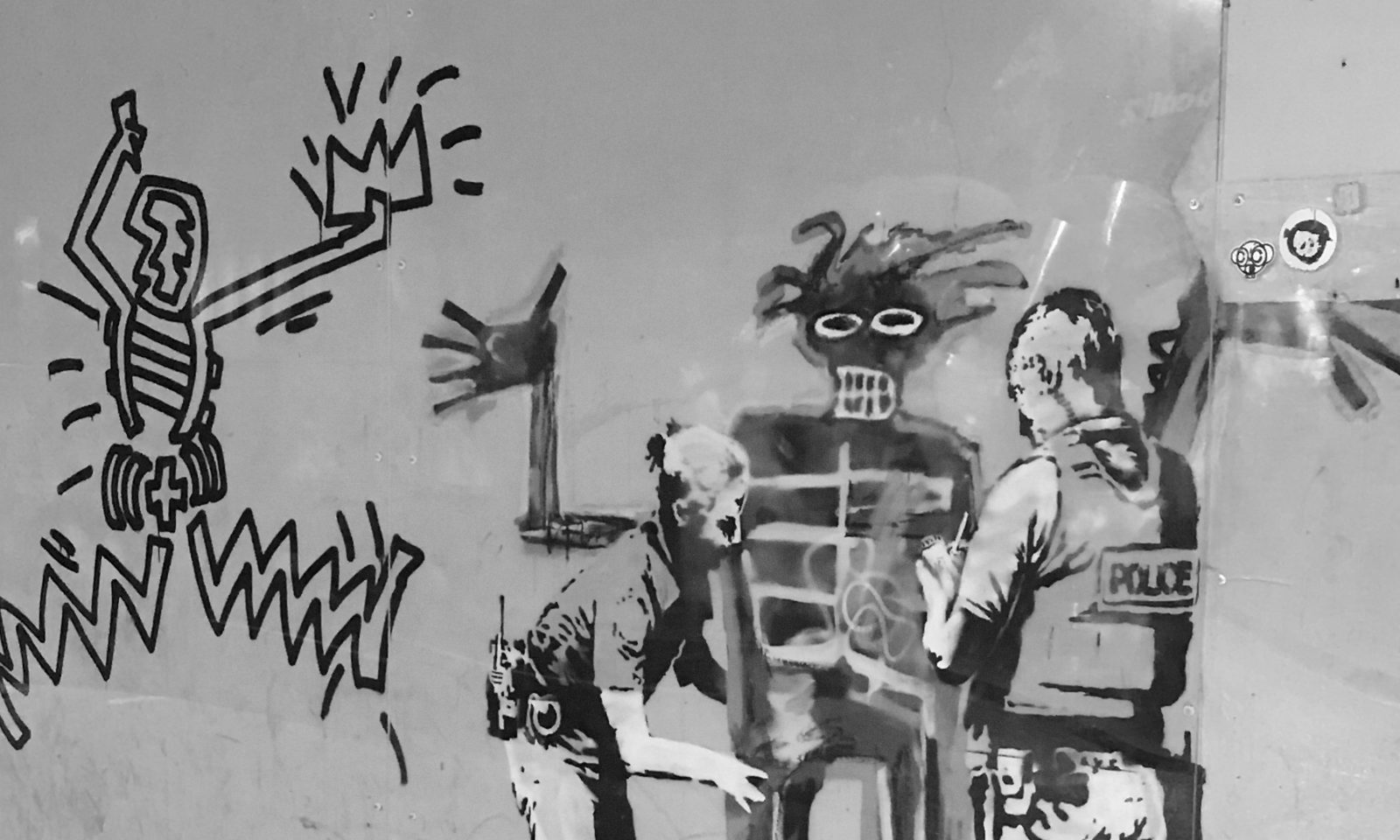Banksy’s graffiti: protected as copyrighted works or trademarks?
The world known anonymous street artist Banksy recently opened a shop in South London that is closed for the public. In fact, it is only a storefront, in which different rather unusual products are exhibited. They can be bought on the artist’s newly established online store. In the background of these openings by the activist, who is generally against intellectual property and its commercialisation, are legal procedures regarding the protection of Banksy’s works and his name.
In a dispute that took place before the court of Milan this year, Banksy, or rather the company that represents his works, filed a lawsuit against the organiser of an exhibition of his works. The court concluded that the sale of merchandise incorporating his famous Flower Thrower constitutes trademark infringement as this work had been registered as such. The court also implied that Banksy will have to use the mark (sell products) on the market, if he wants to maintain the trademark. On the other hand, the court did not enforce copyrights on the works without revealing his identity. Despite the fact that some criticise Banksy’s hypocrisy regarding intellectual property rights, what remains worrying is that the court apparently do not have sufficient mechanisms to safeguard the author’s right to remain anonymous and the right to pseudonym. If the author cannot efficiently enforce those moral rights, they can be considered hollow.
The Grand Board of the European Union Intellectual Property Office (EUIPO) finally ruled that the figurative sign ‘COVIDIOT’ cannot be registered as an EU trademark.
The 4th Open Knowledge Day took place on Tuesday 17 October 2023, with an accompanying workshop on 18 October 2023. This year it was organised by the Open Data and Intellectual Property Institute (ODIPI) and supported by Knowledge Rights 21 (KR21).
We invite you to the fourth Open Knowledge Day and the workshop, which will take place this year within the framework of the programme and with the support of Knowledge Rights 21. The event will bring together experts from different European countries to discuss two topics: the first part will deal with the legal basis for data analytics, which is a key part of machine learning and related artificial intelligence, and the general exception for research. In the second part, open science in theory and practice will be presented both in Slovenia and in some Western Balkan countries. Representatives of research and educational institutions from Slovenia and the Western Balkan countries, as well as interested members of the public, are invited to attend.
Dr. Maja Bogataj Jančič, a renowned expert in copyright law, has joined the Berkman Klein Center for Internet & Society at Harvard University, where she will serve as an affiliate researcher for the next two years.





